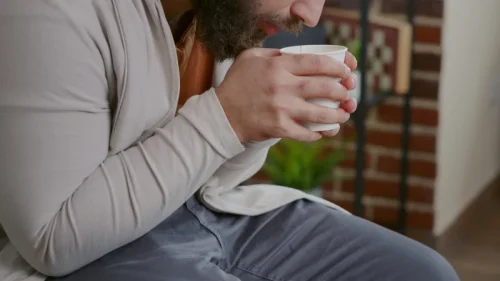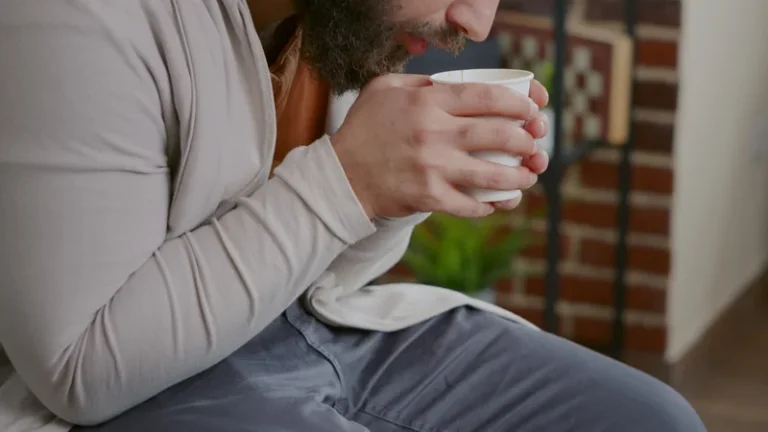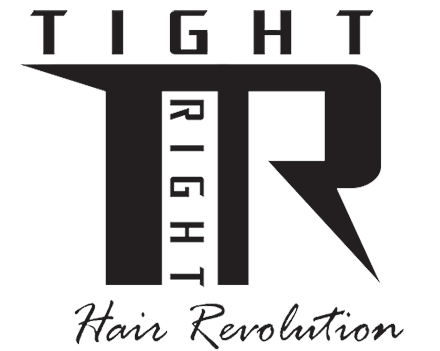03 Jun Should I be using alcohol to help me sleep?

Using either substance can contribute to insomnia, especially when you use it closer to bedtime. Because your body is already hyperactive from withdrawal, it is best to avoid caffeine and nicotine altogether until you finish detoxing from alcohol. Statistics show that 5.3 percent of all people 12 and older in the U.S. have an alcohol use disorder. And many others might deal with problematic drinking, but fall into the gray area. All this is to say that “just quitting” isn’t always easy, even when alcohol use harms your sleep and well-being.
Make positive lifestyle changes
In some cases, sedative drugs (i.e., benzodiazepines) have been used for treating sleep problems, but their use for this purpose remains controversial (Ciraulo and Nace 2000). The combination of several treatment approaches might be especially effective in this respect. Several animal studies addressed the possibility that sleep disturbances in early development could lead to heavy alcohol consumption later in life (e.g., Hilakivi et al. 1987). In these studies, newborn rats were treated with various antidepressants, resulting in reduced levels of REM sleep compared with untreated rats. As adults, the treated rats exhibited decreased levels of certain brain chemicals implicated in sleep (i.e., monoamine neurotransmitters) and increased alcohol consumption compared with the untreated rats. To assess the use of alcohol as self-medication for sleep problems more thoroughly, Roehrs and colleagues (1999) studied 20 nonalcoholic adults in the laboratory, 11 of whom had insomnia and 9 of whom were normal sleepers.

Addiction and Recovery in Rural America

During this stage of rehab, trained medical professionals monitor vital functions, ensure breathing, prevent dehydration and comfort the client until withdrawal symptoms subside and alcohol completely leaves the body. Good sleep hygiene also includes exercising before dinner, avoiding naps and engaging in a quiet, relaxing activity in Oxford House preparation for bedtime. Getting quality sleep can assist people in maintaining sobriety during recovery. One study found that tetrabamate and diazepam can help improve sleep among people undergoing alcohol detox.

Can Sleep Problems Predispose People to Alcoholism?
- In summary, alcohol misuse (heavy alcohol use and AUD) appears to be linked in a bi-directional fashion to sleep-related problems such as insomnia and circadian rhythm abnormalities.
- Among the groups that consumed higher amounts, they experienced more rapid eye movements at night and were prone to insomnia.
- Slow wave sleep increases after moderate to high bedtime alcohol use, but the effect of lower doses on slow wave sleep are again less certain.
- The problem is that alcoholics often start drinking again as a way to deal with their symptoms.
- This pattern is interrupted by a rise to REM sleep, which lasts for a short period, then a steady fall back through the stages of NREM sleep.
A 2019 study showed that individuals who sleep for under 6 hours each night have a 20% higher chance of heart attack than individuals who sleep between 6 and 9 hours. 2020 research suggests that alcohol impacts the part of sleep known as rapid eye movement (REM). Drinking heavily over time can also disrupt the chemical messengers in the brain, which can affect sleep.
- Stages 1 and 2 sleep are sometimes referred to as light sleep, because people are relatively easy to awaken during these stages.
- This results in difficulty falling asleep and staying asleep due to the predominantly excited brain state experienced by users who quit alcohol.
- By understanding the whys and hows behind insomnia, we can devise strategies to reclaim your sound sleep.
- Consistent with this hypothesis, treatment with GABAA agonists improved sleep during alcohol withdrawal in rats (Rouhani et al. 1998).
- Unfortunately, alcohol withdrawal can quickly lead to insomnia or “sleeplessness.” In fact, it is one of the most common symptoms after discontinuing alcohol use.
Some signs and symptoms may resemble those of alcoholism or alcohol use disorder – only to a lesser extent. Thus, improving your sleep quality may need to be addressed separately, while working on your alcohol issue. That’s where natural sleep alternatives come into play, such as melatonin supplements, lifestyle changes, exercise, a stable bedtime routine, online insomnia treatment programs, like Somnus Therapy, etc.
In some cases, a person’s brain doesn’t send the right signals to control their breathing during sleep. In these cases, the problem lies with the throat muscles, which relax too much, partially or fully blocking a person’s airway repeatedly during the night. Research also indicates that drinking alcohol makes a person more likely to experience a sleep-related eating disorder. The primary characteristic of these disorders is episodes of binge eating during the night. During these episodes, people tend to choose high-carb foods and foods that aren’t safe for human consumption, including raw meat. Whereas people with a nocturnal eating disorder are aware of their eating, people with a sleep-related eating disorder are not in control of their actions and won’t remember what took place the next morning.

However, the Journal of Addiction Medicine reports that some insomnia after drinking sleep disturbances may persist for several months or longer. These might include occasional difficulty falling asleep or maintaining continuous sleep throughout the night. Alcohol addiction treatment can be a difficult process, and one of the common symptoms of alcohol withdrawal is insomnia. Insomnia is difficulty falling or staying asleep, affecting over half of individuals undergoing alcohol withdrawal.
Alcohol’s Impact on Sleep Patterns & Metabolism
Our state-specific resource guides offer a comprehensive overview of drug and alcohol addiction treatment options available in your area. If you wake up, try a calming activity such as deep breathing or a brief meditation. Avoid checking your phone or engaging with bright screens, as that can make it harder to fall back asleep. Falling asleep and getting a full night’s rest are real problems that need to be managed effectively to maintain sobriety. Thankfully, sleeping without alcohol is https://ecosoberhouse.com/ an achievable goal if you follow several recommended strategies.


Sorry, the comment form is closed at this time.